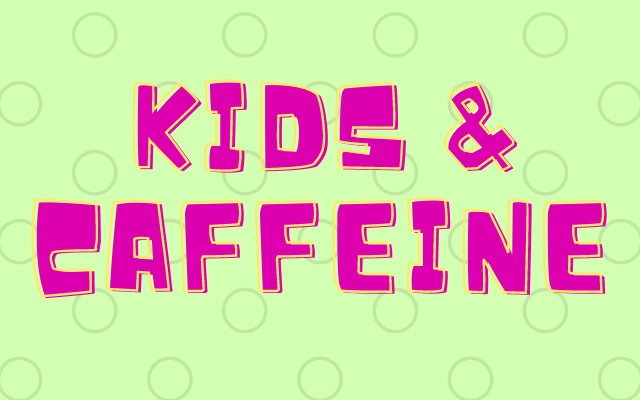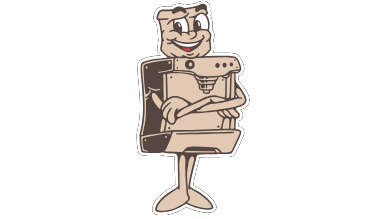
For most parents, the thought of giving their young child a cup of coffee ranks right up there with some of the worst parenting sins, like giving a child an alcoholic drink. But what many parents fail to consider is that kids consume caffeine on a daily basis from a number of other sources, including soft drinks, chocolate, and even energy drinks.
Caffeine Recommendations for Kids
One main issue is a lack of caffeine intake guidelines for kids in the US. As a result, how much caffeine a young child should have is murky at best. But in a country like Canada, kids are restricted to a recommended 45 mg of caffeine a day at preschool age. This is equivalent to a 12-ounce soda or four small chocolate bars.
If you’ve ever seen your child down cup after cup of soda at a birthday party or gorge themselves on chocolate on Halloween, then they’ve probably exceeded their recommended caffeine limit.
Caffeine Overload: Where It All Begins
When a child’s diet isn’t monitored, and they end up eating too much candy and ingesting caffeine as a result, caffeine will work as a drug and place a burden on a young child’s system. Yes, that’s right – caffeine stimulates the central nervous system and may cause a number of related symptoms like:
- Jitteriness
- Headaches
- Difficulty concentrating
- Upset stomach
- Increased heart rate
- Increased blood pressure
Although a moderate amount of caffeine in children shouldn’t cause an issue, kids who overdo it could experience a number of adverse health effects, including the possibility for caffeine to aggravate an existing heart problem or nervous disorder. This may be true even in children who may not be aware of a health issue.

A future coffee enthusiast enjoying Coke.
Global Coffee Cultures and Children
Although American parents may feel pious by refusing to give their kids coffee at a young age, other cultures don’t share the same sentiment. Latin American cultures especially are well-known for giving kids coffee with milk at an early age as a warm drink served with breakfast.
How early do kids in Latin America drink coffee? It depends, although many locals reveal that it can be as early as a child is out of a high chair. Many Latin American coffee drinkers liken this to the French view on wine. In France, kids are given wine in moderation at a young age, and they also drink cafe au lait each morning.
Nursery-age children in Brazil are offered both milky coffee and caffeinated iced tea on a daily basis. Most kids love the milky coffee drink and consume it regularly during their growing years.
The Brazilian government stands behind early coffee drinking and even encourages the practice. At a recent SCAA Symposium, a Brazilian coffee industry representative advocated the fact that children in elementary school are given regular coffee breaks to develop a coffee drinking habit at an early age.
Caffeine Myths: Where to Draw the Line
Although Americans may never embrace the global perspective of giving young children coffee each morning before school – or even serving coffee in an elementary school cafeteria, it’s important for parents to understand the truth about caffeine, beyond the myth.
Years ago, most parents believed the age-old adage that caffeine will stunt growth. However, after years of research, scientists have been unable to prove that the theory is true.
For most parents, limiting caffeine consumption is key, although it doesn’t have to be avoided altogether. While kids in the US may drink caffeinated sodas and eat chocolate, kids in other countries like Brazil may intake the same amount of caffeine in a daily diluted coffee drink.
Interestingly enough, kids in the US who consume caffeine from soda and candy are probably at a greater risk for a number of related health issues because of excess sugar intake, including childhood obesity and diabetes. A cup of coffee in the morning for your child may not be so bad after all…

